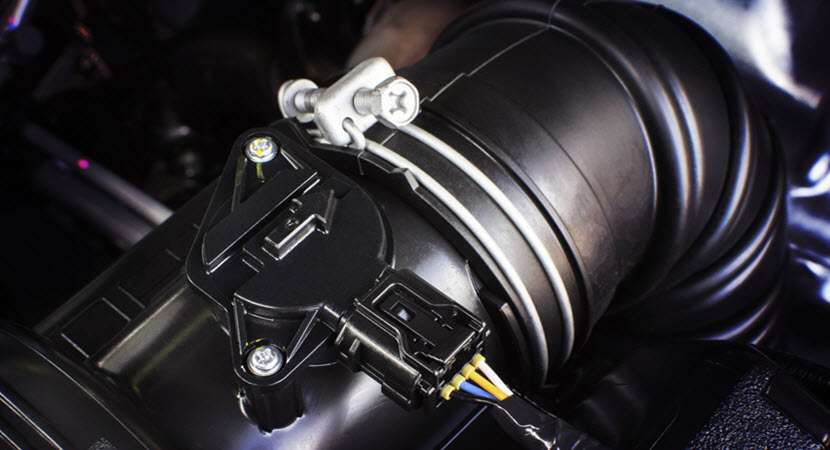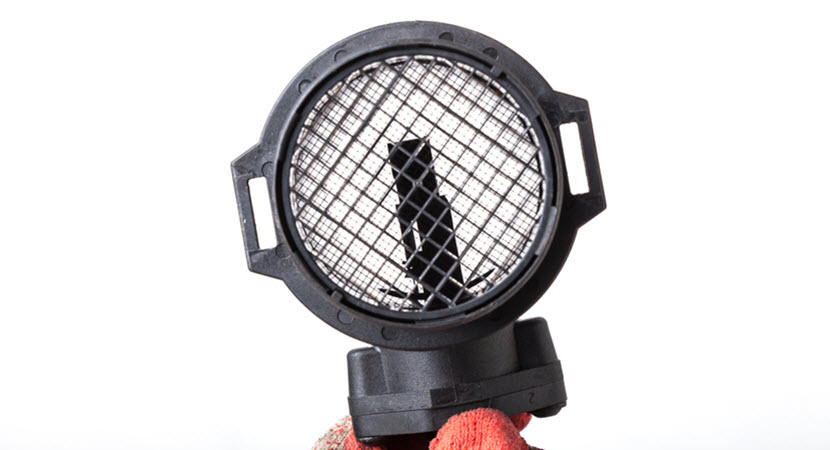As a BMW owner, you may have heard of the MAF sensor, but may not fully understand what it is and how it works. The MAF sensor, or Mass Airflow Sensor, plays a crucial role in the operation of your BMW’s engine. It measures the amount of air entering the engine and sends that information to the engine control unit (ECU), which then adjusts the fuel-air mixture to maintain optimal engine performance. However, over time, the MAF sensor can go bad, leading to a variety of issues with your BMW. In this article, we’ll explore what causes the MAF sensor to go bad and how to fix it.
Causes of MAF Sensor Failure
- Dirt and Debris: The MAF sensor is located in the engine air intake system, which means it can easily become clogged with dirt, dust, and debris. This can cause the MAF sensor to provide inaccurate readings to the ECU, which can lead to engine performance issues.
- Electrical Problems: The MAF sensor relies on electrical connections to function properly. If these connections become damaged or corroded, it can cause the MAF sensor to malfunction.
- Age: Like all components of your BMW, the MAF sensor can simply wear out over time. This can lead to degraded performance or complete failure.
- Contamination: The MAF sensor is incredibly sensitive, and even a small amount of oil or other contaminants can cause it to fail. This is particularly true if the contaminants get on the sensor element.
Symptoms of a Bad MAF Sensor
There are several symptoms that can indicate a faulty MAF sensor. These include:
- Poor Performance: A bad MAF sensor can lead to a reduction in engine performance, including reduced power, acceleration, and fuel efficiency.
- Check Engine Light: The check engine light may come on if the MAF sensor fails. This is because the ECU is receiving inaccurate information from the MAF sensor.
- Rough Idle: A bad MAF sensor can cause your BMW to idle roughly or even stall.
- Reduced Fuel Efficiency: Since the MAF sensor is responsible for measuring the amount of air entering the engine, a malfunctioning MAF sensor can lead to improper fuel-air mixture and decreased fuel efficiency.
Fixing a Bad MAF Sensor
While it’s possible to replace the MAF sensor yourself, it’s not recommended. The MAF sensor is a critical component of your BMW’s engine, and any mistakes during the replacement process can lead to serious issues. Instead, it’s best to take your BMW to one of our qualified mechanics for MAF sensor replacement. Here’s what you can expect during the replacement process:
- Diagnosis: Our mechanic will first diagnose the issue to confirm that the MAF sensor is indeed faulty. They may use diagnostic tools to read error codes and perform tests to determine the root cause of the issue.
- Replacement: Once the issue has been diagnosed, our mechanic will replace the faulty MAF sensor with a new one. This process typically takes around an hour or two, depending on the complexity of the engine.
- Testing: After the replacement is complete, our mechanic will test your BMW to ensure that the issue has been resolved. This may include taking the car for a test drive, performing diagnostic tests, and checking for error codes.
Tips For Preventing MAF Sensor Failure In A BMW
- Keep your air filter clean: A dirty or clogged air filter can cause the MAF sensor to work harder than it needs to, potentially leading to failure. Regularly replacing your air filter can help prevent this.
- Use high-quality air filters: Using low-quality air filters can lead to more dirt and debris making its way to the MAF sensor. Choosing high-quality air filters can help prevent MAF sensor failure.
- Avoid using oil-based air filters: Oil-based air filters can cause oil to coat the MAF sensor, leading to failure. Stick to dry air filters to avoid this issue.
- Avoid using cleaning sprays: While it may be tempting to clean your MAF sensor with a cleaning spray, this can actually do more harm than good. The chemicals in these sprays can damage the delicate MAF sensor and lead to failure.
- Keep your engine properly tuned: A poorly tuned engine can cause the MAF sensor to work harder than it needs to, potentially leading to failure. Regularly servicing your engine can help prevent this.
- Address any check engine codes promptly: If your BMW’s check engine light comes on, it’s important to address the issue promptly. Ignoring check engine codes can lead to more serious issues, including MAF sensor failure.

Book An Appointment Today At Dieter’s Porsche & BMW Service
Dieter’s Porsche & BMW Service is the leading specialist in the maintenance and prevention of MAF sensors for your BMW. Located in San Diego, CA, Dieter’s Porsche & BMW Service also provides exceptional service to Chula Vista, Coronado, Mission Valley, Point Loma, and all surrounding communities.
Since 1960, our experienced mechanics and advanced diagnostic tools will help you keep your BMW running optimally so you can get back on the road worry-free. Don’t wait any longer – book an appointment with Dieter’s Porsche & BMW Service today for precision maintenance and prevention of your BMW’s MAF Sensor.


